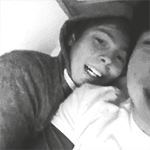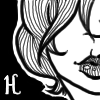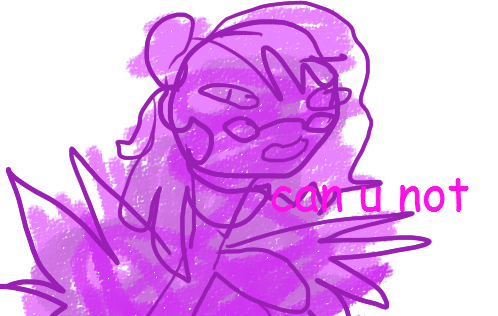Would you regret joining an rp;where they turn into animals, if you turned a girl into a grizzly bear, which it says in her form? I just did this and she's the fiercest animal there{she's bipolar; and grizzlies are moody much.} Maybe the biggest, and shes a GIRL. But, everyone wanted me to make her a bear...
Literate/Semi-Literate/Illiterate VS. The Five Point Scale
Re: The "Literate/Semi-Literate/Illiterate" Debate
Last edited by void. on Thu Jun 16, 2011 9:30 am, edited 1 time in total.
-

void. - Posts: 2188
- Joined: Wed Dec 15, 2010 12:30 pm
- My pets
- My items
- My wishlist
- My gallery
- My scenes
- My dressups
- Trade with me
Re: The "Literate/Semi-Literate/Illiterate" Debate
/nod
In general I'm against any sort of requirement. It's just that two paragraphs is usually, for me, about right. For some people a little longer; for some, a little shorter. I don't hold with length requirements at all (which sadly most "literate" RPs promote).
The golden rule of RP is "keep the story going", after all.
In general I'm against any sort of requirement. It's just that two paragraphs is usually, for me, about right. For some people a little longer; for some, a little shorter. I don't hold with length requirements at all (which sadly most "literate" RPs promote).
The golden rule of RP is "keep the story going", after all.
-

Harpalyce - Posts: 6211
- Joined: Fri Jan 28, 2011 2:01 pm
- My pets
- My items
- My wishlist
- My gallery
- My scenes
- My dressups
- Trade with me
Re: The "Literate/Semi-Literate/Illiterate" Debate
Enfys wrote:@kuroyami & Mao mi: Hey, hey. Calm down, both of you. We don't want his topic to be locked because of fighting. Take it to the PMs if you really must.
Subject can be considered dropped on my behalf, as I was being legitimately curious.
On topic: I'm not big on roleplaying, but introductions aside I think a decent flow of "flowery bits" are fine for beginning character description as long as it's kept within sane boundaries. The rest of it should rightfully be limited to action and reaction, or relevant mentions.
The downside to some "literate" roleplaying does tend to be through overkill of either using words that don't belong, or dragging it on; or a combination of both.
I'm not sure about re-arranging the whole thing into grading systems though, it seems to be working fine for the moment. Although what do I know considering how often I roleplay on forums.
-

Anonymuse - Posts: 312
- Joined: Fri May 21, 2010 5:07 am
- My pets
- My items
- My wishlist
- My gallery
- My scenes
- My dressups
- Trade with me
Re: The "Literate/Semi-Literate/Illiterate" Debate
Harpalyce wrote:/nod
In general I'm against any sort of requirement. It's just that two paragraphs is usually, for me, about right. For some people a little longer; for some, a little shorter. I don't hold with length requirements at all (which sadly most "literate" RPs promote).
The golden rule of RP is "keep the story going", after all.
I love to roleplay;and I agree with you. But,my muse sometimes cuts me too low or high. Like you said.I joined 2 invite only and they died already. grrr. :c
-

void. - Posts: 2188
- Joined: Wed Dec 15, 2010 12:30 pm
- My pets
- My items
- My wishlist
- My gallery
- My scenes
- My dressups
- Trade with me
Re: The "Literate/Semi-Literate/Illiterate" Debate
● ғ σ я ɛ ʌ ɛ я ● wrote:Would you regret joining an rp;where they turn into animals, if you turned a girl into a grizzly bear, which it says in her form? I just did this and she's the fiercest animal there{she's bipolar; and grizzlies are moody much.} Maybe the biggest, and shes a GIRL. But, everyone wanted me to make her a bear...
I'm in that one. Its completely your choice, change her if you want.
I made my mass murderer a noble stag. I'd like to see how that goes.
~Kites
I made my mass murderer a noble stag. I'd like to see how that goes.
~Kites
•Trying to find a username that fits me•
♥
Back from spending the year travelling. ^^
Locations: South Africa, Swaziland, Mozambique, Thailand, Laos, Cambodia, Vietnam, Back to Thailand, Australia, New Zealand, Fiji, HOME
~I used to be Sherlock~
♥
Back from spending the year travelling. ^^
Locations: South Africa, Swaziland, Mozambique, Thailand, Laos, Cambodia, Vietnam, Back to Thailand, Australia, New Zealand, Fiji, HOME
~I used to be Sherlock~
-

Kites - Posts: 13890
- Joined: Wed May 13, 2009 3:56 am
- My pets
- My items
- My wishlist
- My gallery
- My scenes
- My dressups
- Trade with me
Re: The "Literate/Semi-Literate/Illiterate" Debate
I'll be totally honest, I think CS just isn't a good environment for roleplaying.
Threads get lost too easily, and quickly become overwhelming for newcomers. People are limited in their ability to go off and do side-plots because everyone's posting in the same place. Not to mention that OOC comments are either nonexistent or in danger of taking over the RP thread itself.
To me, the most ideal place to RP is a separate board like invisionfree where there are separate areas for character forms, rules, and various places within the RP setting, along with an OOC board and chatbox for quick discussion.
Threads get lost too easily, and quickly become overwhelming for newcomers. People are limited in their ability to go off and do side-plots because everyone's posting in the same place. Not to mention that OOC comments are either nonexistent or in danger of taking over the RP thread itself.
To me, the most ideal place to RP is a separate board like invisionfree where there are separate areas for character forms, rules, and various places within the RP setting, along with an OOC board and chatbox for quick discussion.
-

Harpalyce - Posts: 6211
- Joined: Fri Jan 28, 2011 2:01 pm
- My pets
- My items
- My wishlist
- My gallery
- My scenes
- My dressups
- Trade with me
Re: The "Literate/Semi-Literate/Illiterate" Debate
I like roleplaying here because I know a nice group of roleplayers, and am always meeting new ones. I'd rather have all my roleplays on one place to be honest. I tried juggling multiple site roleplays, and it just didn't work at all.
~Kites
~Kites
•Trying to find a username that fits me•
♥
Back from spending the year travelling. ^^
Locations: South Africa, Swaziland, Mozambique, Thailand, Laos, Cambodia, Vietnam, Back to Thailand, Australia, New Zealand, Fiji, HOME
~I used to be Sherlock~
♥
Back from spending the year travelling. ^^
Locations: South Africa, Swaziland, Mozambique, Thailand, Laos, Cambodia, Vietnam, Back to Thailand, Australia, New Zealand, Fiji, HOME
~I used to be Sherlock~
-

Kites - Posts: 13890
- Joined: Wed May 13, 2009 3:56 am
- My pets
- My items
- My wishlist
- My gallery
- My scenes
- My dressups
- Trade with me
Re: The "Literate/Semi-Literate/Illiterate" Debate
@Harpalyce: I shy away from length requirements as well; I feel as if I say "three sentences" that's all anyone gives me. But I also love it here. I think it really connects the community.
@Mao mi: (I apologize in advance if I sound rude in any way. I don't intend it to, really ) 1. I think the current way of thinking is too vague. There's a lot of room for improvement in semi-lit. 2) If we don't hang the terms, the definition won't change. If I said pencil meant pony, people would still think of pencil meaning pencil, not pony. 3) Illiterate means you can't read or write, making it inaccurate for our purposes. 4) I wouldn't like being called illiterate, would you?
) 1. I think the current way of thinking is too vague. There's a lot of room for improvement in semi-lit. 2) If we don't hang the terms, the definition won't change. If I said pencil meant pony, people would still think of pencil meaning pencil, not pony. 3) Illiterate means you can't read or write, making it inaccurate for our purposes. 4) I wouldn't like being called illiterate, would you?
@Mao mi: (I apologize in advance if I sound rude in any way. I don't intend it to, really
I'M BACK!
Phew! Well that hiatus was way longer than I was planning!
I see that many of my friends have changed their usernames, so please excuse me while I figure out who's who, and also forgive me for temporarily dissapearing off the face of the earth.
Feel free to shoot me a PM and catch up!
End of the school year coming up so I might not be on for the next few days due to parties/graduation/family etc. etc.
The House on Willowby Lane
Animal Rescue RP
Semi-Lit
Open
Phew! Well that hiatus was way longer than I was planning!
I see that many of my friends have changed their usernames, so please excuse me while I figure out who's who, and also forgive me for temporarily dissapearing off the face of the earth.
Feel free to shoot me a PM and catch up!
End of the school year coming up so I might not be on for the next few days due to parties/graduation/family etc. etc.
The House on Willowby Lane
Animal Rescue RP
Semi-Lit
Open
-

Enfys - Posts: 3629
- Joined: Sun Apr 10, 2011 9:50 am
- My pets
- My items
- My wishlist
- My gallery
- My scenes
- My dressups
- Trade with me
Re: The "Literate/Semi-Literate/Illiterate" Debate
Oh, and also, I was thinking that I should make another topic, this one for debating and improving the idea, the other for being evaluated on your skill level. Spammy? Not spammy? Good idea? Bad?
I'M BACK!
Phew! Well that hiatus was way longer than I was planning!
I see that many of my friends have changed their usernames, so please excuse me while I figure out who's who, and also forgive me for temporarily dissapearing off the face of the earth.
Feel free to shoot me a PM and catch up!
End of the school year coming up so I might not be on for the next few days due to parties/graduation/family etc. etc.
The House on Willowby Lane
Animal Rescue RP
Semi-Lit
Open
Phew! Well that hiatus was way longer than I was planning!
I see that many of my friends have changed their usernames, so please excuse me while I figure out who's who, and also forgive me for temporarily dissapearing off the face of the earth.
Feel free to shoot me a PM and catch up!
End of the school year coming up so I might not be on for the next few days due to parties/graduation/family etc. etc.
The House on Willowby Lane
Animal Rescue RP
Semi-Lit
Open
-

Enfys - Posts: 3629
- Joined: Sun Apr 10, 2011 9:50 am
- My pets
- My items
- My wishlist
- My gallery
- My scenes
- My dressups
- Trade with me
Re: The "Literate/Semi-Literate/Illiterate" Debate
Enfys wrote:@Mao mi: (I apologize in advance if I sound rude in any way. I don't intend it to, really) 1. I think the current way of thinking is too vague. There's a lot of room for improvement in semi-lit. 2) If we don't hang the terms, the definition won't change. If I said pencil meant pony, people would still think of pencil meaning pencil, not pony. 3) Illiterate means you can't read or write, making it inaccurate for our purposes. 4) I wouldn't like being called illiterate, would you?
The reasoning for my answer is due to the fact that people who address themselves as "illiterate" are quite literally people who... well, address themselves as such. It was not exactly something that was bestowed in a disputed manner or put on as a means of discriminative judgement more, from what I can see in various websites.
I see people finding partners and a five part grading scale can be overwhelming to newcomers where a simple division between one or the other at the moment is a simplified but welcoming manner. You can opt to change the terms, but while it's easy to read this as "What's so hard to get?" I find that when it comes to showing someone something new, or having them come on their own, the more text and categories involved, the scarier it is for them.
It's that vagueness and simplicity that welcomes people's curiosity and let's them take the simple steps forward to then go from a beginner to branching out into broader means. "Illiterate" can be seen as a shield for people instead of a discriminative term since people who are less well versed in English feel that they can fit in somewhere without being judged, and they move at their own pace to strive towards "literacy."
I have to admit though, I've always lol'd at the terms "literate" and "illiterate" in my personal honesty. I don't use them nor do I hold them in high regard, but it works psychologically through observation.
-

Anonymuse - Posts: 312
- Joined: Fri May 21, 2010 5:07 am
- My pets
- My items
- My wishlist
- My gallery
- My scenes
- My dressups
- Trade with me
Who is online
Users browsing this forum: No registered users and 20 guests

